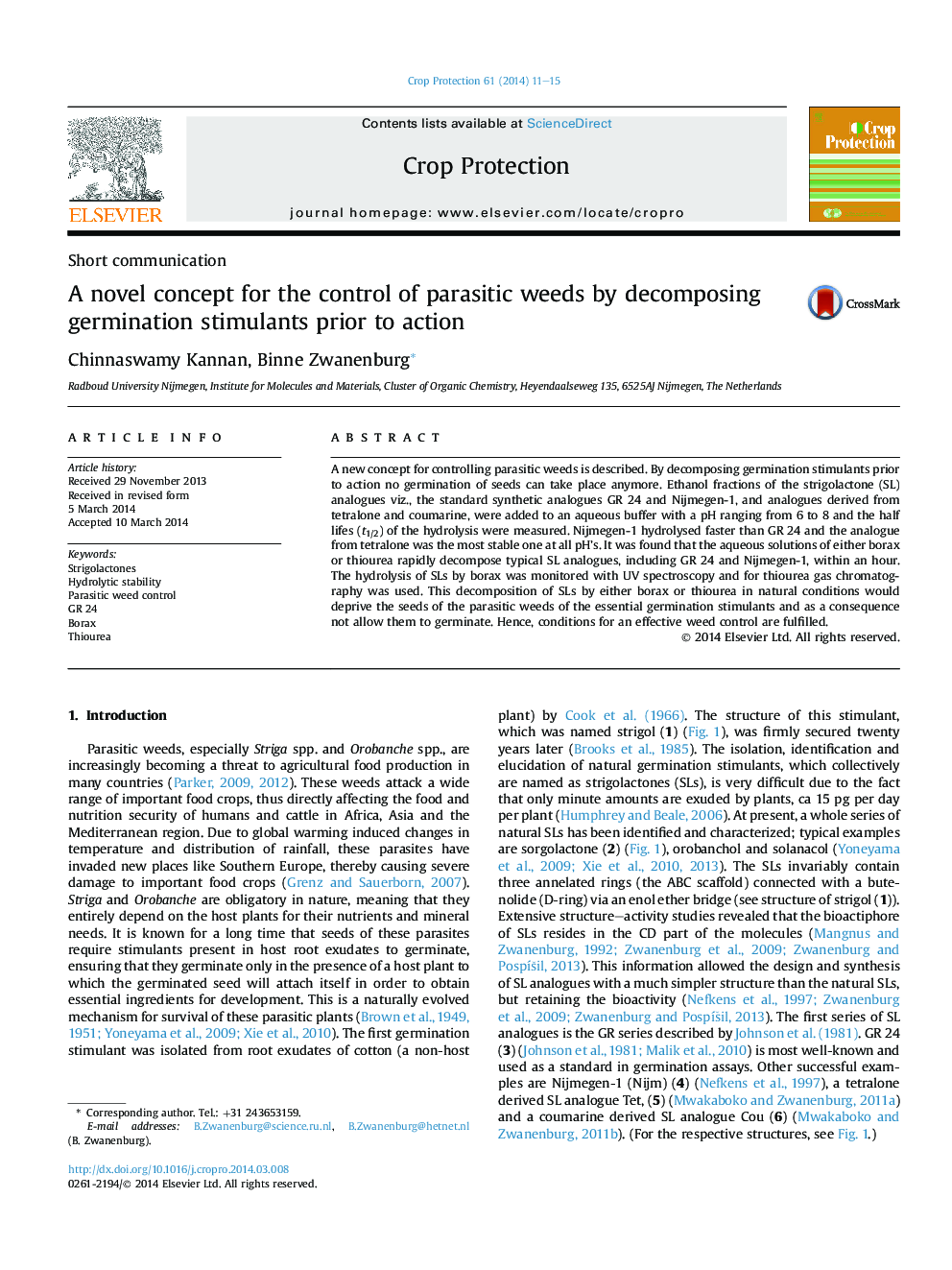| Article ID | Journal | Published Year | Pages | File Type |
|---|---|---|---|---|
| 4505901 | Crop Protection | 2014 | 5 Pages |
Abstract
A new concept for controlling parasitic weeds is described. By decomposing germination stimulants prior to action no germination of seeds can take place anymore. Ethanol fractions of the strigolactone (SL) analogues viz., the standard synthetic analogues GR 24 and Nijmegen-1, and analogues derived from tetralone and coumarine, were added to an aqueous buffer with a pH ranging from 6 to 8 and the half lifes (t1/2) of the hydrolysis were measured. Nijmegen-1 hydrolysed faster than GR 24 and the analogue from tetralone was the most stable one at all pH's. It was found that the aqueous solutions of either borax or thiourea rapidly decompose typical SL analogues, including GR 24 and Nijmegen-1, within an hour. The hydrolysis of SLs by borax was monitored with UV spectroscopy and for thiourea gas chromatography was used. This decomposition of SLs by either borax or thiourea in natural conditions would deprive the seeds of the parasitic weeds of the essential germination stimulants and as a consequence not allow them to germinate. Hence, conditions for an effective weed control are fulfilled.
Related Topics
Life Sciences
Agricultural and Biological Sciences
Agronomy and Crop Science
Authors
Chinnaswamy Kannan, Binne Zwanenburg,
